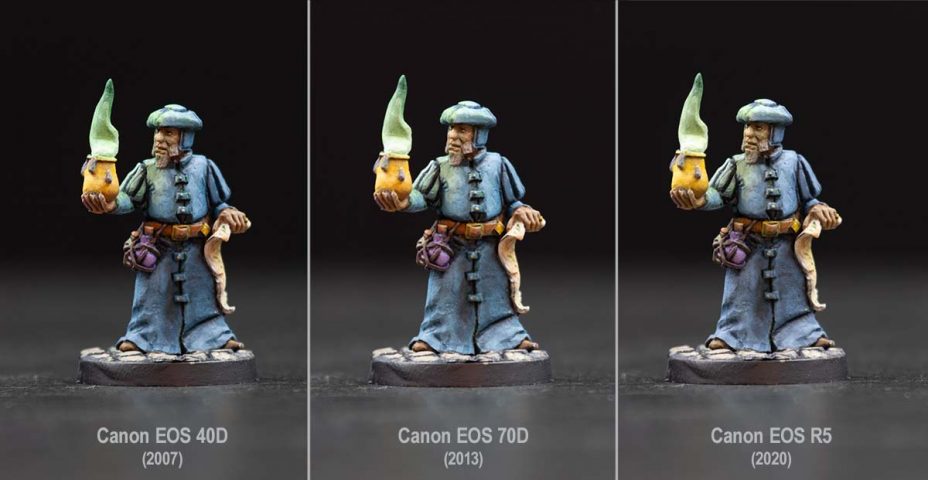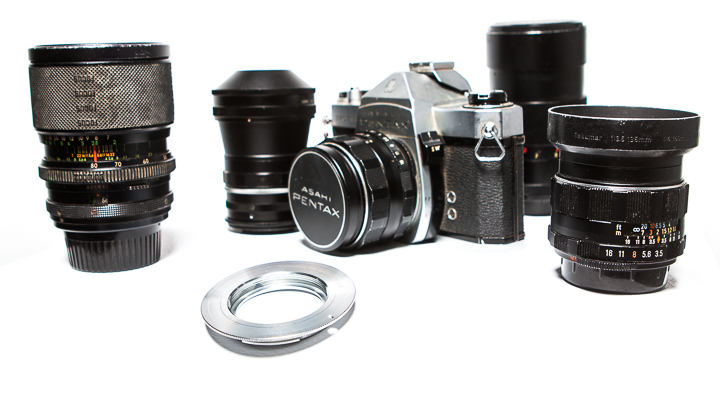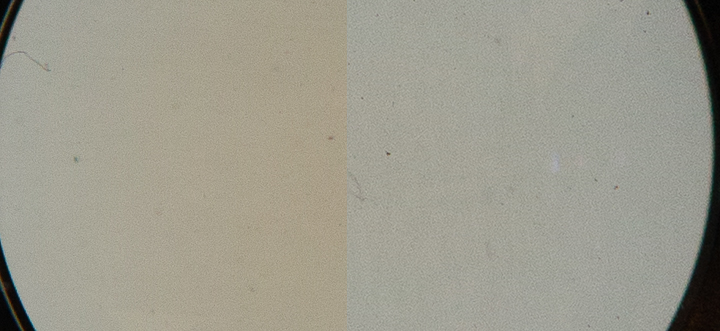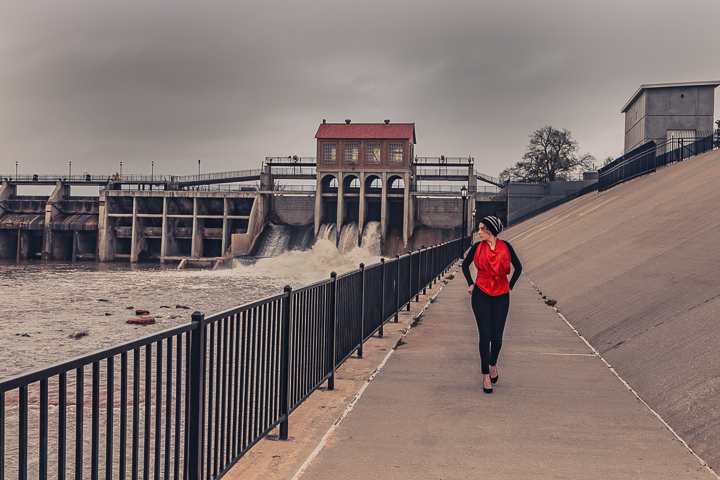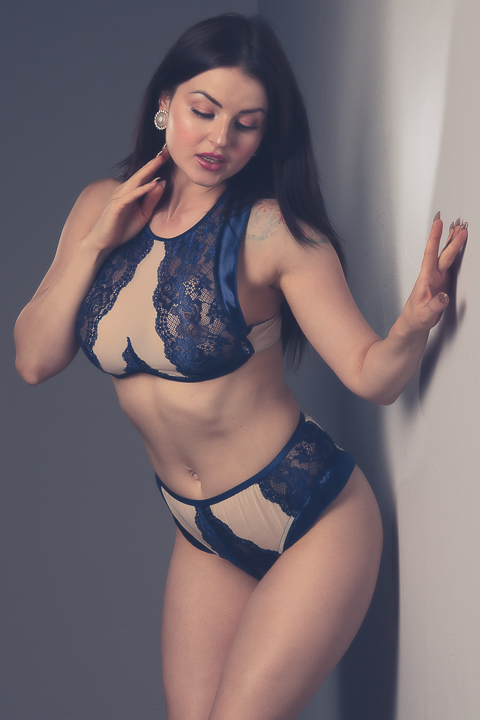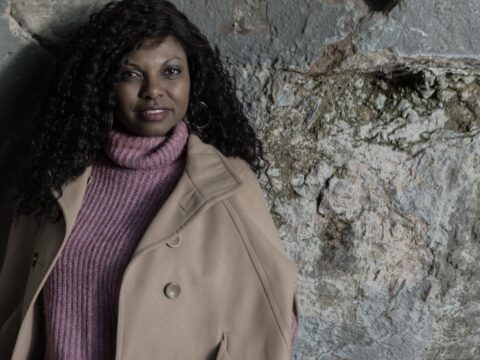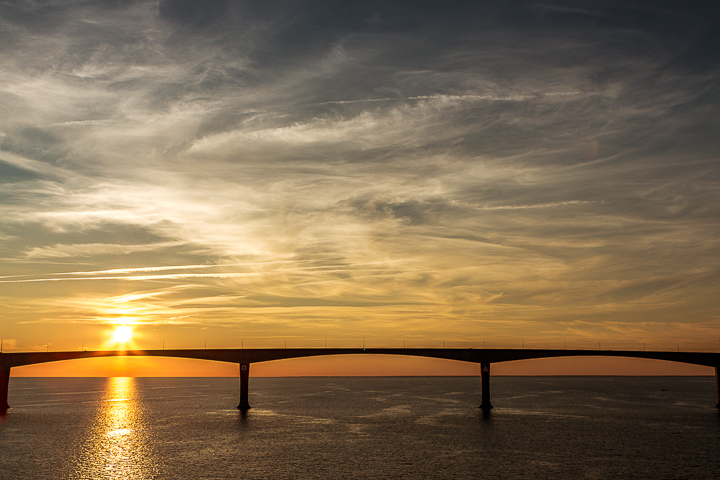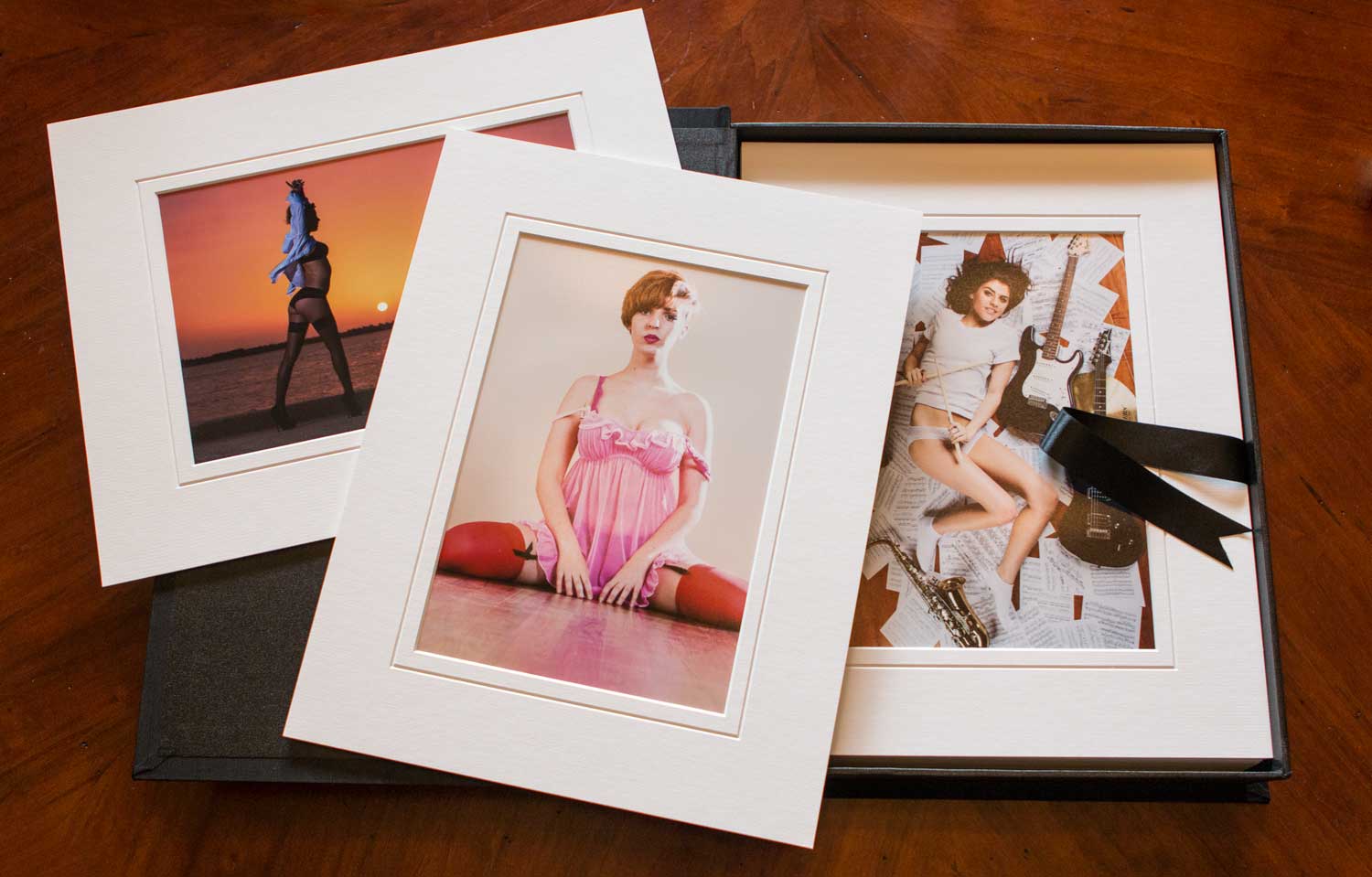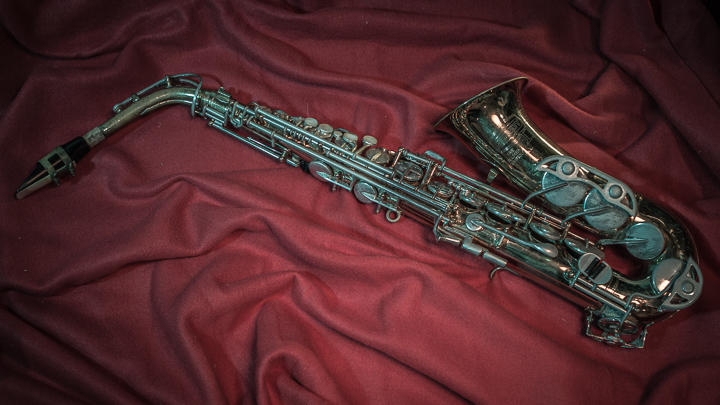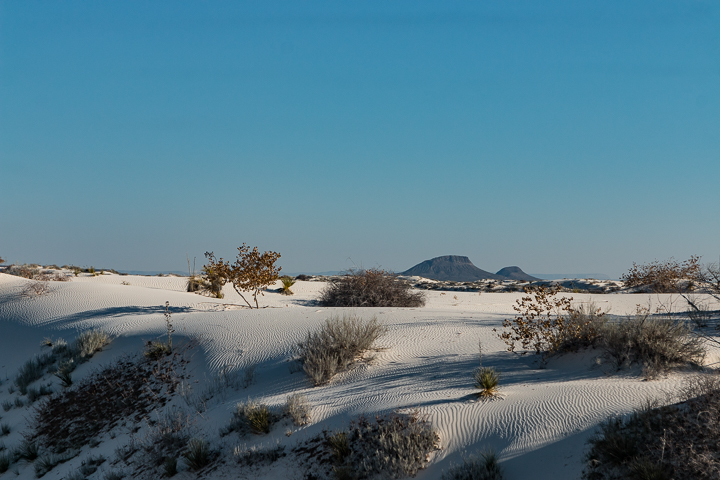I recently discussed the need for Selecting A New Camera. I briefly mentioned a few things that guided my personal decisions. Following up, I gave my thoughts on why the camera you use actually does matter. As previously mentioned, my evolution has taken me through multiple Canon bodies. Today, with the help of a friendly wizard, will I contradict myself?
Am I Seeing Triple?
I enjoy painting miniatures. The gentleman above, in triplicate, is an alchemist model procured from RPE Miniatures. He was eager to be the subject of my test and his assistance is greatly appreciated. I know he has plenty of fires burning. I also thank him for allowing me to call him a “wizard”. It works better with the title of this post, so we’re rolling with it.
I set up a lightbox, a tripod, and my favorite miniature portrait lens. From the same position, I swapped out only the camera body, rotating through my three camera bodies. The settings in all three images are identical (f/5.6, 1/25 shutter, and ISO 100 for those curious). The goal: Compare the results from each body side by side.
The Wizard Looks the Same!
I did no editing other than to splice the images together for easy comparison of the subject. All things being equal, even the fourteen-year old body produces a shot that looks identical to the image produced by last year’s mirrorless offering. Did I just prove that the camera does NOT matter? Not at all. Here are a couple of things to consider beyond what appears obvious:
- RAW file sizes from left to right: 9.16mb, 19.8mb, and 32.4mb respectively. When examining the original frames, straight out of camera, each one has progressively more information. The 70D files are almost twice the size of those the 40D produces. If you are editing, resizing, or doing just about anything to the image, size matters.
- Sensor sizes. Related to the last point, the 40D and 70D are 1.6 crop sensors. The R5 is a full-frame sensor. In very basic terms, a crop sensor literally crops the view down. You are looking at the same thing a full-frame sensor sees, but through a smaller window. That means you see less even when you are using the same lens.
I could delve deeper, but this is enough for one day. We’ll come back later and tackle that crop versus full-frame thing. The wizard, er…alchemist, images are not quite right for quickly demonstrating the concept since I cropped them all down to splice nicely together. And then there are all those new-fangled features that have come about in the last fourteen years.

